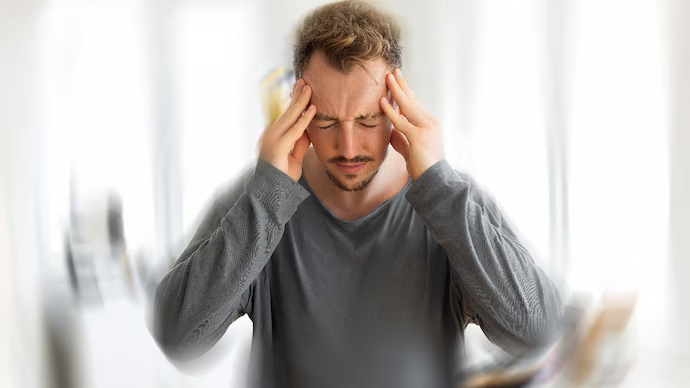
Obstructive sleep apnea often presents with subtle symptoms that patients and doctors overlook. Beyond the classic signs of snoring and daytime sleepiness, the condition creates unexpected symptoms affecting multiple body systems.
Recognizing these atypical presentations enables earlier diagnosis and treatment. Many patients suffer for years with puzzling symptoms before discovering their underlying sleep disorder.
Obstructive sleep apnea affects every organ system through repeated oxygen deprivation. Breathing pauses occur dozens to hundreds of times nightly without patient awareness in many cases.
The condition develops gradually over months to years. Symptom onset occurs so slowly that patients adapt without recognizing significant changes in their health and function.
Healthcare providers often attribute symptoms to other conditions. Depression, diabetes, and hypertension frequently mask underlying obstructive sleep apnea diagnosis.
Sleep fragmentation prevents restorative sleep cycles. REM and deep sleep disruption creates widespread physiological dysfunction beyond simple tiredness. Learn more about improving your sleep quality.
We asked Dr. Michael Grandner, Sleep Expert and Professor of Neuroscience and Physiological Sciences, about diagnostic challenges. He says: "Atypical symptoms often delay obstructive sleep apnea recognition significantly." This highlights how non-obvious presentations complicate early detection.
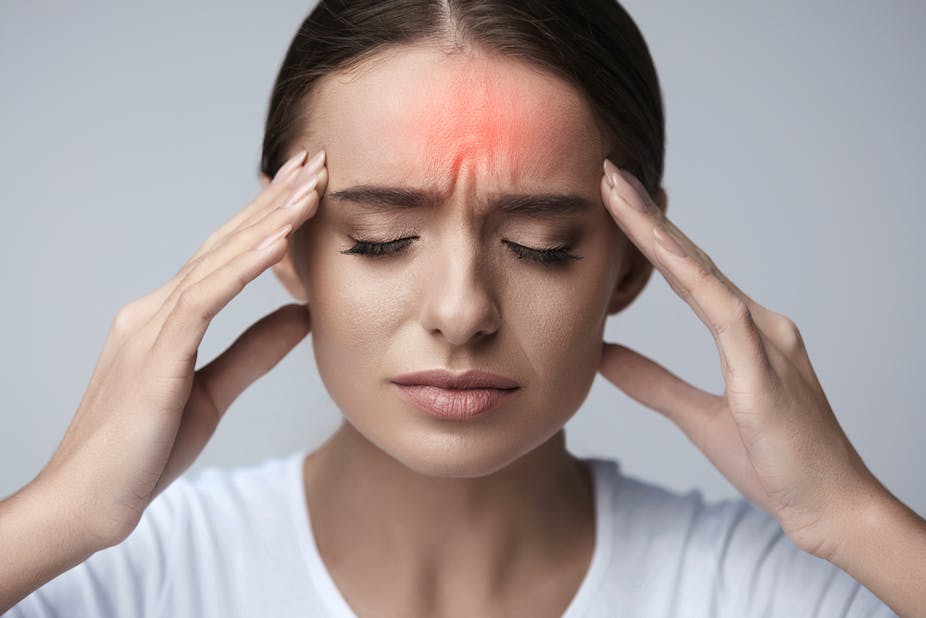
Morning headaches occur in 74% of obstructive sleep apnea patients compared to 18% of healthy individuals. These headaches typically resolve within 4 hours without medication treatment.
Carbon dioxide retention during breathing interruptions causes cerebral blood vessel dilation. Increased intracranial pressure creates mechanical headache pain upon awakening.
The pain distribution usually affects both sides of the head equally. Bilateral headache patterns differ from typical migraine presentations which predominantly affect one side.
Headache severity correlates with sleep apnea intensity. Patients with severe breathing interruptions experience more frequent and intense morning headaches.
Treatment with continuous positive airway pressure therapy eliminates morning headaches in 85% of patients. Headache resolution often occurs within 2-4 weeks of effective treatment.

Cognitive impairment affects 60% of obstructive sleep apnea patients before diagnosis. Memory consolidation suffers through sleep fragmentation preventing normal brain processing during sleep.
Short-term memory becomes particularly affected. Patients struggle to remember conversations appointments, and daily tasks despite normal intelligence.
Executive function deteriorates progressively with disease duration. Planning, organizing, and problem-solving abilities decline significantly in untreated patients.
Attention span decreases markedly. Concentration difficulties affect work performance and daily activities substantially.
Chronic oxygen deprivation damages brain tissue directly. Gray matter volume decreases in areas responsible for memory and executive function.

Obstructive sleep apnea disrupts hormones that regulate appetite and metabolism. Leptin levels decrease while ghrelin increases creating persistent hunger and food cravings.
Metabolic rate decreases through chronic sleep deprivation. Energy expenditure drops by 5-8% contributing to progressive weight accumulation over time.
Insulin resistance develops through sleep fragmentation. Glucose metabolism becomes impaired leading to increased fat storage particularly around the abdomen.
Cortisol elevation promotes weight gain. Stress hormone increases from repeated awakening responses encourage central obesity patterns.
Weight gain worsens sleep apnea severity. This creates a vicious cycle where the condition causes weight gain which further worsens breathing problems. Weight loss, bariatric surgery, and lifestyle changes can help break this cycle. Proper nutrition plays a crucial role in sleep health.

Depression occurs in 46% of obstructive sleep apnea patients compared to 9% of healthy individuals. Mood disorders develop through chronic sleep disruption and oxygen deprivation effects on brain chemistry.
Irritability becomes prominent even with adequate sleep duration. Emotional regulation becomes increasingly difficult affecting relationships and work interactions.
Anxiety disorders develop at higher rates. Generalized anxiety affects 27% of moderate to severe sleep apnea patients. Understanding and managing sleep anxiety is crucial for recovery.
Personality changes occur gradually. Family members often notice increased moodiness, impatience, and social withdrawal.
We asked Dr. Suzanne Gorovoy, Sleep Expert and Clinical Psychologist specializing in Behavioral Sleep Medicine, about mood symptom recognition. She says: "Mood changes often precede classic obstructive sleep apnea symptoms." This emphasizes how psychiatric symptoms may be the first indication of sleep-disordered breathing.
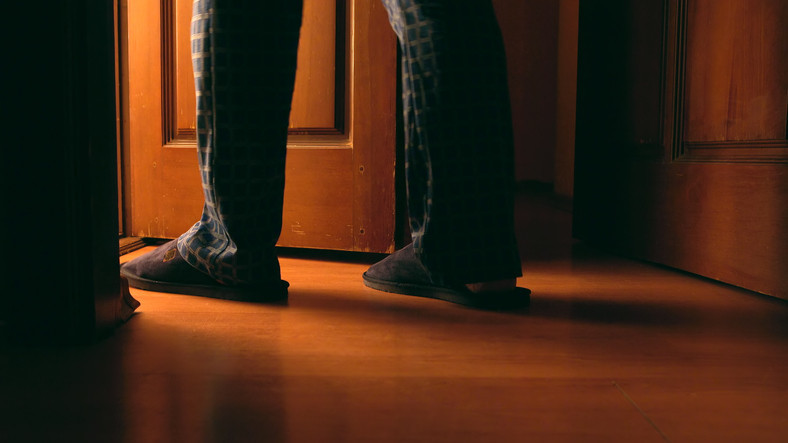
Nocturia affects 85% of sleep apnea patients compared to 29% of healthy adults. Frequent urination during sleep hours disrupts sleep quality while indicating underlying breathing problems.
Breathing interruptions trigger hormone changes affecting kidney function. Atrial natriuretic peptide release increases during apnea episodes promoting excessive urine production.
Blood pressure surges during breathing interruptions affect kidney filtration. Repeated pressure changes alter normal fluid regulation mechanisms.
Many patients assume nocturia results from aging or prostate problems. Sleep apnea evaluation should occur when nocturia accompanies other unexplained symptoms.
Continuous positive airway pressure treatment reduces nighttime urination in 67% of patients. Effective therapy normalizes hormone levels and kidney function.
A comprehensive study published in Sleep Medicine examined symptom presentations in 3,542 newly diagnosed sleep apnea patients. Researchers identified significant differences between typical and atypical presentations across demographic groups.
Women showed more atypical symptoms compared to men. Female patients presented with depression, anxiety, and insomnia rather than classic snoring and witnessed apneas.
Younger patients under 40 years old displayed predominantly non-respiratory symptoms including mood changes, cognitive dysfunction, and unexplained fatigue.
Patients with mild sleep apnea showed the most atypical presentations. AHI values between 5-15 events per hour correlated with subtle, easily dismissed symptoms.
The research revealed that atypical presentations delayed diagnosis by an average of 3.2 years compared to classic presentations.
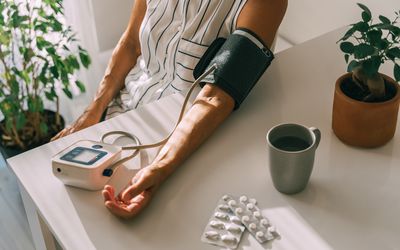
Resistant hypertension occurs when blood pressure remains elevated despite three medications. Obstructive sleep apnea contributes to 83% of resistant hypertension cases and increases risk for heart disease.
Morning blood pressure elevation and elevated heart rate become particularly prominent. Early morning hypertension often indicates underlying sleep-disordered breathing.
Blood pressure surges during sleep create chronic cardiovascular stress. Repeated pressure spikes can reach 240/120 mmHg during breathing interruptions.
Young adults with unexplained hypertension should undergo sleep evaluation. Obstructive sleep apnea causes 30% of hypertension in patients under 30 years old.
Blood pressure medications become more effective after treatment. Positive airway pressure therapy often eliminates the need for multiple antihypertensive drugs.
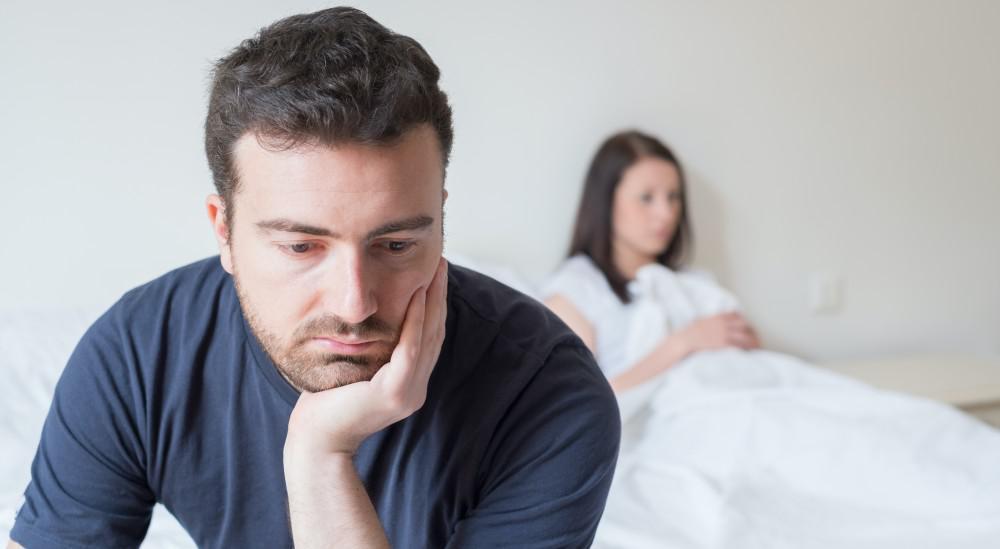
Erectile dysfunction affects 69% of men with moderate to severe obstructive sleep apnea. Sexual performance problems occur through multiple mechanisms including hormone disruption.
Testosterone levels decrease significantly with severity. Hormone production drops 10-15% for every 10-point increase in apnea measurements.
Female sexual dysfunction also increases substantially. Decreased libido and arousal difficulties affect women with sleep-disordered breathing.
Relationship strain compounds sexual problems. Partner sleep disruption from snoring creates additional relationship stress and intimacy difficulties.
Treatment improves sexual function in 75% of patients. Continuous positive airway pressure therapy normalizes hormone levels while improving energy and mood.
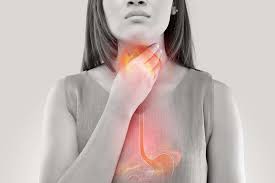
Gastroesophageal reflux disease occurs in 58% of sleep apnea patients. GERD affects sleep quality while the condition worsens acid reflux through pressure changes in the upper airway.
Breathing interruptions create negative chest pressure. This pressure differential pulls stomach acid upward into the esophagus during apnea events.
Arousal responses trigger acid production. Frequent awakenings stimulate gastric acid secretion through autonomic nervous system activation.
Nighttime reflux often worsens severity. Acid aspiration increases upper airway inflammation and breathing difficulties.
Treating both conditions simultaneously provides optimal outcomes. Combined positive airway pressure therapy and acid suppression work synergistically to improve both problems.
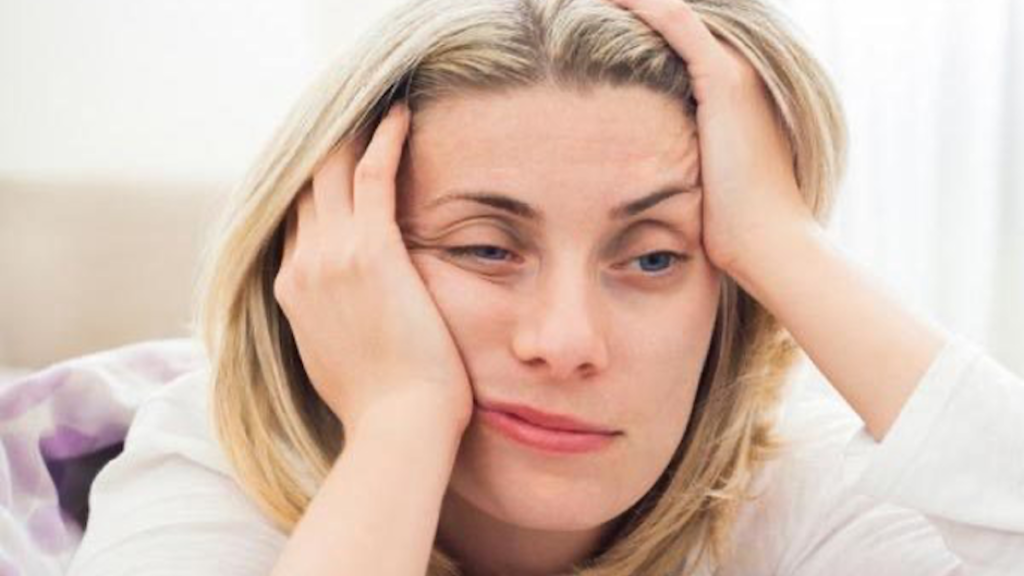
Patients report feeling tired despite sleeping 7-9 hours nightly. Sleep fragmentation prevents restorative sleep regardless of total sleep duration.
Energy levels remain low throughout the day. Chronic fatigue affects work productivity, exercise capacity, and social activities significantly. Discover the reasons why you're always tired.
Afternoon energy crashes become prominent. Post-lunch fatigue intensifies in sleep apnea patients compared to healthy individuals.
Caffeine provides minimal benefit for fatigue. Stimulants cannot compensate for poor sleep quality and oxygen deprivation.
We asked Dr. Areti Vassilopoulos, Sleep Expert and Pediatric Health Psychologist, about fatigue recognition patterns. She says: "Unexplained fatigue warrants comprehensive sleep disorder evaluation." This highlights the importance of considering obstructive sleep apnea in chronic fatigue cases.

Morning dry mouth occurs through mouth breathing during sleep. Nasal obstruction forces oral breathing which dries oral tissues overnight.
Chronic sore throat results from tissue vibration and inflammation. Upper airway tissues become irritated through repeated collapse and reopening.
Dental problems increase with chronic mouth breathing. Dry mouth promotes bacterial growth leading to increased cavity and gum disease rates.
Voice changes occur through vocal cord irritation. Hoarseness and throat clearing become more frequent in sleep apnea patients.
Continuous positive airway pressure humidification or nasal pillows prevent dry mouth symptoms. Heated moisture delivery maintains oral tissue hydration during therapy.
Learning difficulties affect both children and adults. Academic and work performance decline through attention and memory impairment.
Personality changes become noticeable to family members. Increased aggression, social withdrawal and emotional lability develop gradually.
Decision-making abilities deteriorate significantly. Poor judgment and impulsive behavior increase with severity.
Leg swelling occurs through heart strain and fluid retention. Peripheral edema develops in 23% of patients with severe obstructive sleep apnea.
Chronic cough may indicate complications. Recurrent respiratory infections occur through compromised immune function.
Temperature regulation problems affect comfort. Night sweats and cold intolerance develop through autonomic dysfunction.
Atrial fibrillation affects many patients with untreated sleep apnea. Atrial fibrillation risk increases significantly with severe breathing interruptions. Managing atrial fibrillation often requires addressing underlying sleep disorders.
Multiple unexplained symptoms warrant sleep evaluation. Three or more atypical symptoms occurring together suggest possible sleep apnea.
Family history increases diagnostic suspicion significantly. Relatives with sleep apnea multiply individual risk by 200-400%.
Treatment-resistant medical conditions require sleep assessment. Difficult-to-control diabetes, hypertension, or depression may improve with treatment.
Partner observations provide valuable diagnostic information. Witnessed breathing interruptions or loud snoring strongly suggest sleep-disordered breathing. Learn whether your snoring is a health risk.
Overnight polysomnography provides comprehensive evaluation. Sleep testing measures breathing patterns, blood oxygen levels, and sleep architecture simultaneously. A sleep center offers the most thorough sleep testing available.
Home sleep testing offers convenient screening alternatives. Portable monitoring devices work well for obvious cases.
Multiple Sleep Latency Tests assess sleepiness objectively. MSLT measurements quantify excessive sleepiness severity and patterns.
Blood pressure monitoring reveals nocturnal hypertension patterns. 24-hour ambulatory monitoring documents sleep-related pressure changes.
Cognitive testing quantifies impairment severity. Neuropsychological evaluation documents attention, memory, and executive function deficits.
Hormone level assessment reveals endocrine disruption. Testosterone, cortisol, and growth hormone measurements document systemic effects.
A sleep diary helps track symptoms and patterns before diagnosis.
While obstructive sleep apnea involves physical airway blockage, central sleep apnea stems from neurological signaling problems. Central sleep apnea requires different treatment approaches. Central sleep apnea may respond to adaptive servo-ventilation or other specialized therapies.
Positive airway pressure devices remain the gold standard treatment. CPAP use provides immediate symptom relief for most patients. Consistent CPAP use prevents long-term complications.
Oral appliances reposition the jaw to maintain airway patency. Oral appliances work well for mild to moderate cases. Custom-fitted oral appliances from dentists offer optimal results.
Weight loss significantly improves symptoms and severity. Even modest weight loss can reduce breathing interruptions substantially. Combined with positive airway pressure, weight loss enhances treatment outcomes.
Sleep hygiene practices support overall treatment success. Good sleep hygiene includes consistent schedules and optimal sleep environments.
Enlarged tonsils may require removal in some patients. Addressing enlarged tonsils opens the airway naturally.
Surgical interventions may benefit select patients. Surgical interventions can modify airway anatomy permanently.
Mood improvements occur within 2-4 weeks of effective treatment. Depression and anxiety symptoms improve rapidly with sleep normalization.
Cognitive function restoration takes 2-6 months. Memory and attention deficits resolve gradually with consistent therapy. Increasing deep sleep naturally can enhance recovery.
Physical symptoms improve variably. Headaches resolve quickly while weight loss requires ongoing lifestyle modification.
Cardiovascular protection develops over months to years. Heart attack and stroke risk decrease substantially with effective treatment.
Diabetes control improves significantly. Blood sugar management becomes easier with treatment.
Quality of life scores improve across all domains. Physical function, mental health, relationships all benefit from sleep disorder treatment.
Sleep apnea often presents with unexpected symptoms including morning headaches, memory problems, unexplained weight gain, mood changes, and frequent nighttime urination. These atypical presentations frequently delay diagnosis by years.
Recognition of subtle symptoms enables earlier intervention preventing serious health complications. Multiple unexplained symptoms occurring together warrant comprehensive sleep evaluation.
Effective treatment resolves most unexpected symptoms while providing substantial long-term health benefits. Early diagnosis and treatment prevent progression to severe complications affecting multiple organ systems.
Follow this link to order an FDA-cleared Home Sleep Test today!
This article is for informational purposes only and should not replace professional medical advice. Consult with qualified healthcare providers for personalized evaluation and treatment recommendations.

Dr. Areti Vassilopoulos | Psychologist | Sleep Medicine Expert
Dr. Vassilopoulos is the Clinical Content Lead for Sleep Reset and Assistant Professor at Yale School of Medicine. She has co-authored peer-reviewed research articles, provides expert consultation to national nonprofit organizations, and chairs clinical committees in pediatric health psychology for the American Psychological Association. She lives in New England with her partner and takes full advantage of the beautiful hiking trails.